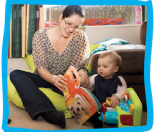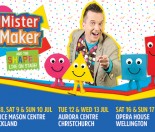When it comes to education, especially the early years of your child’s education, quality is key; it’s what helps set the path for your child and develop their personality. Find out how to assess a childcare centre’s quality.
Parent’s are right to be concerned about childcare centre quality. Before you make your decision, consider the factors below to assess and compare childcare centres in your area
The Parent’s Role
More and more parents are relying on teachers or schools to help develop their child’s educational journey.
However, a parent’s role in their child’s journey is just as significant. It’s vital for parents to be leading the ship of learning, guiding them and allowing them to stay focused on their goals.
Many studies show that being involved in your child’s early education by participating in a variety of learning activities like reading, art, cooking, creative play… etc., actually reinforces the child to continue to learn new things. Parents need to stay involved to ensure their child is continuously engaged and challenged in their educational journey.
That said, there are other factors that every parent should look for when selecting a child’s early education provider. Below are 4 essential factors to look for.
4 Ways to Assess Childcare Centre Quality
1. The Educational Approach
One thing parents should look out for is how the school or teachers are approaching the education of your child.
It’s an ideal system if it works hand-in-hand with you, the parent. Educators at Busy Bees Childcare & Early Learning believe that a child-centred approach with a partnership with parents promotes creativity, individuality, and self-confidence.
Some centres adopt a more generic ‘one-size-fits-all’ method, which won’t work for every child. Every child is different, and it’s up to the centre and its teachers to tailor their methods and curriculum to fit everyone. By implementing differentiated learning techniques, each child will feel included and not be left behind. It also encourages the child to be who they are, and develop at their own pace.
2. The Learning Environment
A child learns well in an encouraging environment and it’s up to the centre to provide this.
Before you enrol your child, make sure they’re entering a safe and nurturing environment to help them grow into strong individuals.
You want to look for an environment that inspires them, surrounds them with like-minded individuals, encourages them to be proactive and participate, and one that acknowledges different learning styles and embraces diversity. When a child grows in a supportive and positive environment, it enhances their ability to learn, gain self-confidence, and be motivated to advance their skills.
3. Teacher Quality
Teacher quality is probably the most important criteria of all. A positive relationship with their teachers could be the difference between your child flourishing and floundering; especially in the early years of schooling.
Are the teachers certified and trained? Does the centre provide their teachers with a proper curriculum? Are the teachers motivated and excited at the prospect of your child starting there?
Remember teachers aren’t just there to look after kids, and then call it a day. A true teacher is a passionate educator who proactively tends to your child’s personal and psychological needs. This can only be done if the student-teacher ratios are small, and the administration for teachers is kept low.
Spending some time in and around the classroom will give you a lot of insights into the teaching staff, and how the interact with the children.
4. The Leadership
It’s been shown that students perform better if the principal, head teacher and school boards provide strong leadership.
Effective leadership in the classroom environment means all teachers at the centre understand the goals of the school, and all children are supported to reach those goals. Strong head teachers guide and coach the other classroom teachers to be the best educators they can be. And getting the best from teachers means the centre will be giving the best to your child.
A sit down meeting with the head teacher or principal of the centre is highly recommended to really get a feel for who they are, both as a person and a professional, and to get a feel for how passionate they are about their school.
Building Blocks
A great African proverb says: If you want to go fast, go alone. If you wish to go far, go together.
Parents, school management, teachers, and children all need to work together to enhance the child’s education, and to help your child reach their potential. By working together, you’ll build on each other’s strengths and your child will flourish in a supportive, community environment.
For more expert advice on your child’s education, check out our Preschool education section.






